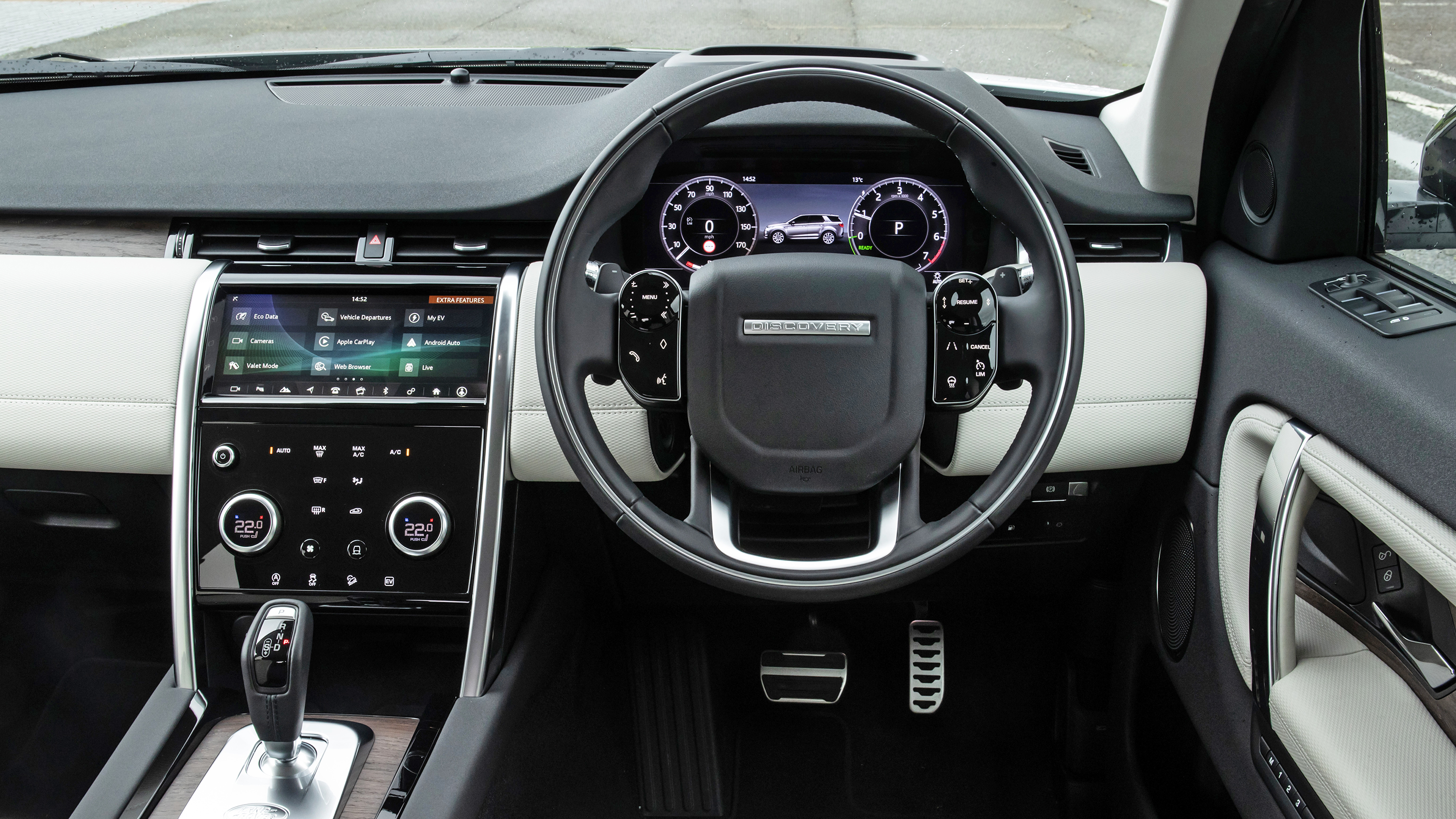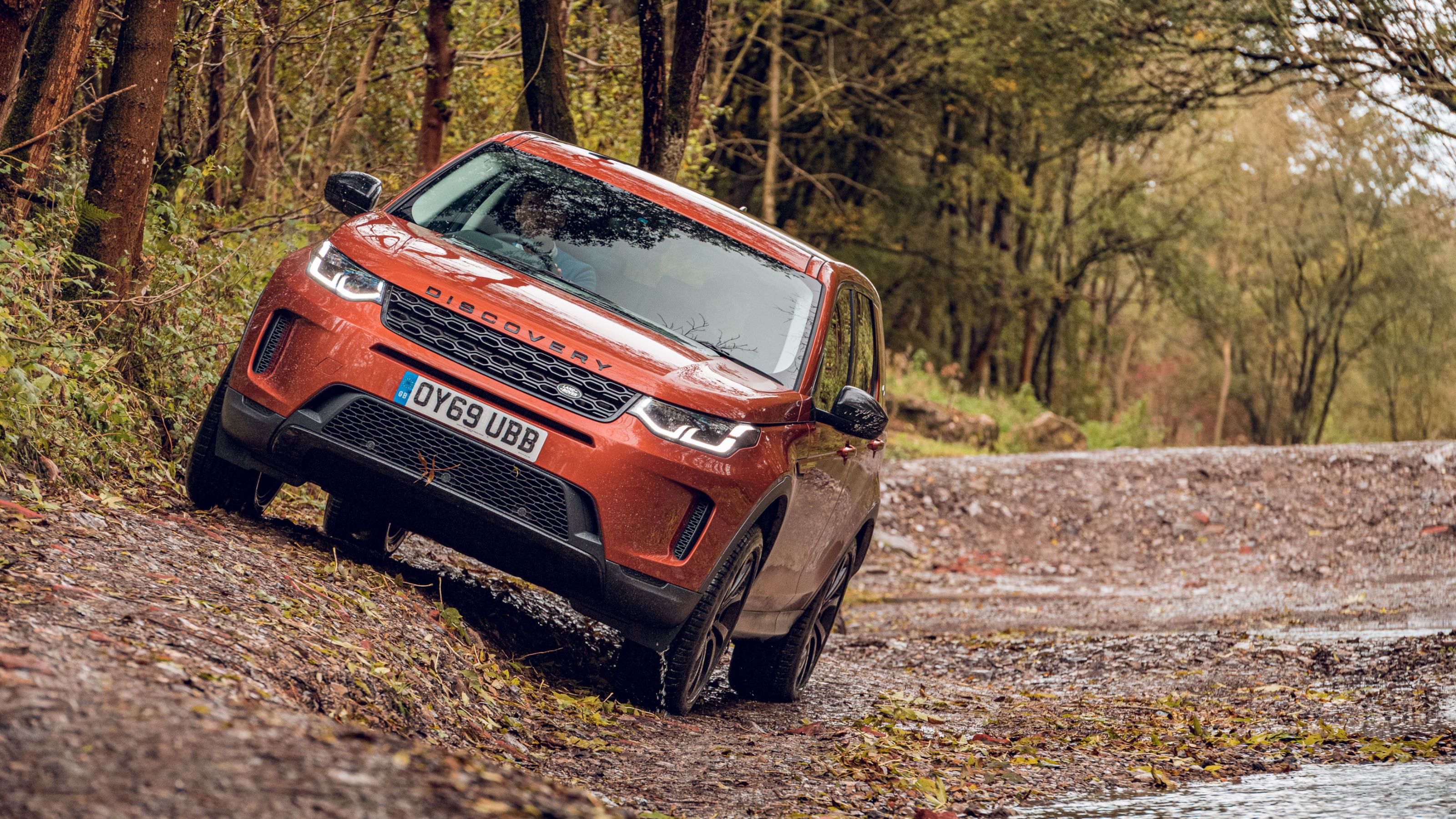
Buying
What should I be paying?
There’s lots about the Discovery Sport to make life easy, especially when it comes to carrying multiple people or towing big stuff. It’ll cart around 2,500kg of bikes/cars/horses and trailer assist systems will make parking it all a doddle.
Ignore the mild-hybrid talk, as for now the tech all beavers away beneath the surface and won’t affect you day-to-day, save for some light fuel savings. The most fuel-efficient Sport actually goes without it, that entry-level diesel manual claiming a mighty 45.1mpg, though that’s massively aided by ditching four-wheel drive.
The D165 is also the supreme bargain of the Disco Sport range, starting at £34,480, with the 5+2 seating adding another grand. But a cautious step through the specs will easily throw you well into the 40s and a plumply specced example with power levels appropriate for hauling stuff around can be fifty grand with ease. But the truth is the Disco Sport feels worth it. Good.
The plug-in hybrid offers a compelling case for switching from a conventional diesel Disco. On paper it can do 181.3mpg and CO2 emissions of 35g/km will appeal to company car folk, but in reality it’ll be circa 50mpg if you’re doing decent distances with semi-frequent charging.
Or, mid-30s if charging proves a total faff and you mainly just fill up with petrol and give its 15kWh battery a free ride wherever you go. A battery which fills the hole in the boot other Discos can squeeze a pair of flip-out seats into. Coupled with the fact that the P300e starts from £52,285, you’ve got to really want that zero-emissions capability to do without a) the optional seven seats, and b) that cash maturing nicely in your savings account. But then Q5 and X3 plug-ins are similarly priced, so it’s not outrageous money.
Featured

Trending this week
- Car Review
BMW iX3






